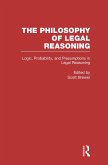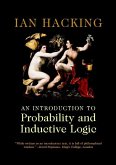In "A System of Logic, Ratiocinative and Inductive," John Stuart Mill presents a methodical exploration of the principles of logical reasoning and the foundations of scientific inquiry. Mill employs a clear and analytical literary style, merging empirical observation with inductive reasoning, a departure from the strictly deductive methods of his predecessors. His work not only seeks to establish a formal framework for scientific methodology but also serves as a pivotal text in the broader context of 19th-century philosophy, reflecting the intellectual currents of utilitarian thought and the burgeoning fields of sociology and economics. Mill's elaborate treatment of informal logic and his emphasis on the interdependence of observation and theory are particularly notable as they anticipate later discussions in philosophy of science. John Stuart Mill, a prominent philosopher, political economist, and civil servant, was deeply influenced by the intellectual environment of his time. As a proponent of utilitarianism and a critic of dogmatic reasoning, Mill's desire to refine the processes of logical inference can be traced to his personal experiences, including his upbringing in a rigorous philosophical household and advocacy for social reform. His commitment to advancing human knowledge and addressing societal issues inspired him to synthesize and articulate a comprehensive logic system. Mill's "A System of Logic" is an essential read for anyone interested in the critique of knowledge and the art of reasoning. This text is invaluable for students of philosophy, science, and social studies, revealing the intricate mechanisms behind sound reasoning and methodological rigor. By engaging with Mill's arguments, readers will not only enhance their critical thinking skills but also gain insights into the foundational ideas that have shaped modern thought.
Dieser Download kann aus rechtlichen Gründen nur mit Rechnungsadresse in A, B, BG, CY, CZ, D, DK, EW, E, FIN, F, GR, H, IRL, I, LT, L, LR, M, NL, PL, P, R, S, SLO, SK ausgeliefert werden.









